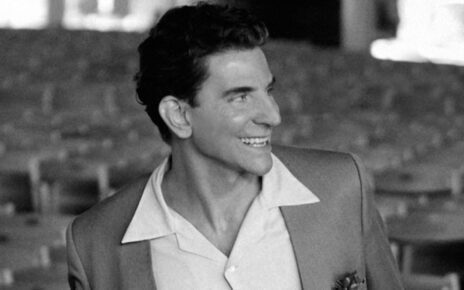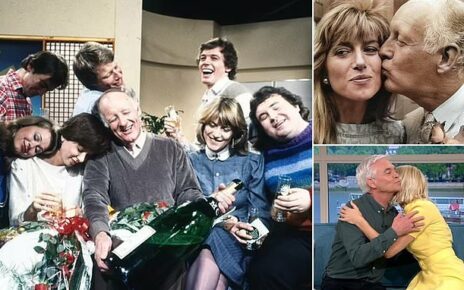Indian Matchmaking could be a match for Emmy voters. Season 2 of the Netflix series is up for consideration as Outstanding Unstructured Reality Program, following season 1’s nomination in that same category. Season 3 of the show, which premiered on Netflix last month, takes audiences to the U.K. for the first time, peeking into the lives of the young Indians living in London searching for their ideal love match with the expert guidance of the show’s captivating yet feisty matchmaker, Seema Taparia.
For the series’ brainchild, documentary filmmaker Smriti Mundhra, who serves as executive producer on the show, the Emmys are about enhancing visibility of the stories she wants to tell.
Related Story
'The Crown' Final Season Will Pay Tribute To Queen Elizabeth II With Three Stars Plus A New Name

“I think recognition from these awards bodies [such as Emmys] is great because it is a boost for these shows, particularly ones that are less supported through traditional marketing campaigns and are a little bit more discoveries for audiences like a lot of my work is,” Mundhra tells Deadline. “Getting recognized with awards is really helpful for that. It gives people another reason to watch. And the more people watch our shows, the more of them we can make, particularly the ones that are from differing perspectives.”
Mundhra didn’t think Indian Matchmaking would receive such an overwhelming response on the global Netflix platform. “I was really proud of the show, and I thought the show was fun, and I knew it would start some conversations, particularly within our communities, in our diaspora,” she says, “But I didn’t expect it to take off the way it did and especially resonate with so many different types of people all over the world.”

She points out that streaming platforms have shifted the mindset of American viewers, making them more receptive to content that underlines culturally diverse landscapes. “I had tempered my expectations for the show,” Mundhra says. “Conventional wisdom has always been that American content – so-called American content – can travel all over the world, but stories that reflect a global perspective don’t always work in the U.S. That was sort of conventional wisdom. And thanks to Netflix and other streaming platforms, many of those walls have been broken down. And I think Indian Matchmaking was one of the earlier shows to prove that.”

The success of Indian Matchmaking opened the sluices for its producers to franchise the relationship reality program format; they created Jewish Matchmaking, which debuted on Netflix on May 3. “When Indian Matchmaking did so well and started resonating with people, one of the most common things we heard was, ‘Oh yeah, we have a version of this in my community.’ I think what became clear is that exploring relationship dating, marriage through culturally specific perspectives was resonating with people,” says Mundhra. “The Jewish community felt like a good place to start because, in one sense, there [are] so many similarities with Indian communities and the Indian perspective, but Jewish Matchmaking is also another example of people trying to retain aspects of their culture and their traditions, but on their own terms. So I think that made it a natural extension of the brand and format, and it was really fun.”

In an exciting twist for Mundhra, Indian Matchmaking and Jewish Matchmaking both recently earned Critics Choice Real TV Award nominations in the Best Relationship Show category, competing against each other (the awards will be presented on Thursday).
The matchmaking shows aren’t the only focus for Mundhra, who earned an Oscar nomination for the 2019 short documentary St. Louis Superman. She’s currently helming a new documentary film in Texas, and last year Mundhra directed an episode of the Disney+ documentary series Growing Up, created by Brie Larson and Culture House. That, too, is in contention for Emmy consideration.

“I was asked to be a part of that [Growing Up] – such an incredible series – by my friend Raeshem Nijhon, who was the executive producer. It’s about coming-of-age stories from different perspectives, and creatively it really excited me. I think the format they crafted was brilliant and fun to make,” she says. “Often, as a documentary filmmaker, you don’t get to shoot in a studio with big lights and production design, and costumes and everything.”
Mundhra describes working with the Growing Up team as a collaborative process, and says she got to choose the subject matter of the episode she directed, titled “Athena.” “We [the directors] each got to contribute and pitch our own topics and our participants. I was excited to do something for a younger audience that explored a younger perspective, and I wanted to explore body image as my topic,” she says emphatically. “I think that’s an underexplored topic in pop culture and also something that impacts many more people than I think is reflected in what we see of it in the media.”
Mundhra says it was important for her and the Growing Up producers to take a sensitive approach to filming Athena’s story – a young Indian-American girl who came to terms with her body image. “It was a really interesting challenge because Athena’s very open and passionate about the subject. But as a filmmaker, you want to be really careful, particularly in topics like this [body image and body positivity] that are so personal, and still people hold a lot of trauma from some of these things,” explains Mundhra. “You want to be careful to draw out those stories and help them [the young adults] feel heard and empowered by telling their stories without re-traumatizing or inadvertently triggering people.”

Mundhra stresses the need for an authentic portrayal of Athena’s story. “We had consultants who helped advise us on the right language and the way to really frame and present the story. And honestly, the biggest piece of it was just Athena and I checking in with each other several times a day while we were filming – ‘How are you feeling? Is there anything you want to say?’ It was really emotionally charged, the whole production, and we just talked. Every few hours, we would take a break, and we’d be like, okay, let’s check-in.”
The episode of Growing Up and the Indian Matchmaking series have given Mundhra, who is Indian American, the opportunity to showcase the complexities of Indian and Indian American culture. She sees more content from that perspective potentially getting a greenlight in Hollywood. “It’s two things. I think one – and most important – [we need] many more creators and South Asian executives, writers, filmmakers, storytellers – and champions of our stories. The other thing that’s important is we have to accept, as a culture, the messiness of who we are as a people and allow that to live and breathe in our stories. We have to allow room for that.”
Mundhra concludes, “Ultimately, the way that we’re going to win is by volume and not by any one project. Because we are one fifth of the world’s population – we’re dozens of languages, we’re dozens of different religions, we’re so many different issues and layers. No one show is ever going to achieve all of that. And we shouldn’t have one show – we should have a hundred shows. It’s only in the volume that we’re going to get what we really want, which is a truly diverse, varied, nuanced representation of our culture and our communities.”
Must Read Stories
Disney Makes A Slew Of Release-Date Changes As WGA Strike Continues
![]()
Biz Remembers ‘Everwood’ & ‘Hair’ Star Who Died In Crash At 71

Netflix/DreamWorks At Annecy; McGregor, Vikander To KV; Rotterdam, Sheffield Hires

News Outlets Lose Battle For Camera Access To Tuesday’s Arraignment

Read More About:
Source: Read Full Article



